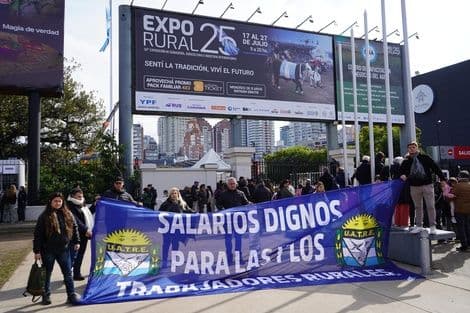Beyond the Bylaw: Unpacking the Informal Power Dynamics in Migrant Labour
Unpack Canada's migrant worker reforms. Discover how informal pressures, not just policy, maintain control and limit freedom despite new work permit promises.

The Invisible Leash: Understanding the Closed Work Permit's Grip
For countless migrant workers in Canada, the closed work permit system acts as an invisible leash, binding them to a single employer and severely limiting their freedom. This restrictive policy, which dictates that losing one's job also means losing the right to work in the country, has long been a flashpoint for criticism. Advocacy groups like the have tirelessly campaigned to dismantle it, pushing instead for open work permits and a direct path to permanent residency. Their recent survey revealed a striking consensus: a staggering 90 percent of over 500 migrant workers surveyed expressed a desire to untie their permits from individual employers. Even the Seasonal Agricultural Worker stream, which theoretically allows transfers, often proves difficult in practice; workers must 'out' themselves to their current employer, a move fraught with risk. The system's inherent power imbalance has drawn severe international condemnation, with a 2023 report starkly labeling the Temporary Foreign Worker (TFW) program a "breeding ground for contemporary forms of slavery." This stark assessment underscores the urgent need for fundamental change, a sentiment echoed by a parliamentary committee in late 2024, which recommended abolishing the closed work permit system entirely in favour of broadly defined regional or sector-specific permits.

Policy's Promise: Deconstructing the Proposed 'Flexibility'
In response to mounting pressure, (ESDC) has put forward a series of proposals aimed at introducing more flexibility into the TFW program. Internal documents reveal plans for a new two-year, sector-specific permit, initially for agricultural and fish processing industries, allowing workers to move between employers within the same sector, provided they secure a new job offer. These proposals also touch on critical aspects like housing, wages, healthcare access, and transportation, stemming from consultations with both employer associations and labour groups. On the surface, this might appear to be a significant step towards worker empowerment. However, a closer look, particularly through the lens of 's recent report, suggests these changes are largely cosmetic. Critics argue that this 'flexibility' creates an illusion of freedom, as the underlying power dynamic remains heavily skewed. The critical flaw, they contend, lies in the continued vulnerability to blacklisting, a powerful informal mechanism that could effectively negate any perceived gains in mobility.

The Echo Chamber: How Informal Networks Undermine Formal Reforms
Despite the federal government's efforts to introduce more 'flexible' work permits, the deeply entrenched informal power structures within the TFW program threaten to render these reforms ineffective. The pervasive fear of blacklisting, where employers informally share information about 'difficult' workers, remains a potent deterrent to exercising any newfound mobility. As , a Jamaican farm worker in , articulated, "The employers know each other. If I complain about one farm, I will not get a good reference to be able to be hired at another farm." This chilling reality underscores how informal networks can effectively negate formal policy changes, maintaining employer control and perpetuating worker dependence. Even those granted open work permits under the Open Work Permit for Vulnerable Workers Program have reportedly struggled to find new employment, often typecast as 'difficult' by prospective employers. This informal penalty for seeking better conditions or reporting abuse traps workers in exploitative situations, turning theoretical mobility into a practical impossibility. The proposed increase in housing deductions from workers' wages, while tied to enhanced safety standards, further illustrates how even seemingly positive adjustments can subtly reinforce the power imbalance if not carefully implemented.

Rewriting the Rules: Towards Genuine Empowerment for Migrant Workers
Achieving genuine empowerment for migrant workers demands more than merely adjusting policy levers; it requires a fundamental dismantling of the informal power structures that currently restrict their agency. The calls from the to abolish the closed work permit system entirely and provide a direct path to permanent residency are not just advocacy points, but essential steps towards true liberation. The 's stark characterization of the TFW program as a "breeding ground for contemporary forms of slavery" should serve as an urgent mandate for comprehensive reform, not just incremental tweaks. The parliamentary committee's recommendation for broadly defined regional or sector-specific permits, rather than narrow ones, offers a more robust framework for mobility, but even this must be coupled with mechanisms to prevent the insidious practice of blacklisting. Real freedom means workers can leave abusive situations without fear of professional retaliation or being left jobless and vulnerable. Until the informal echoes of employer control are silenced, and workers are truly free to seek fair employment without reprisal, any policy 'flexibility' will remain an illusion, and the promise of dignity for migrant labour will continue to ring hollow.
Related Articles

Empowering Journeys: Qowa's Vision for a Dynamic Saudi Labor Market

Empowering Journeys: Qowa's Vision for a Dynamic Saudi Labor Market

Unprecedented Justice: Yanapan's Labor Saga and the Fight for Thailand's Workforce Dignity

Unprecedented Justice: Yanapan's Labor Saga and the Fight for Thailand's Workforce Dignity

Harvesting Inequality: Argentina's Rural Workers Fight for Dignity Amidst Abundance

Harvesting Inequality: Argentina's Rural Workers Fight for Dignity Amidst Abundance

The Fentanyl Factor: Unpacking Trump's Latest Tariff Play Against Canada
